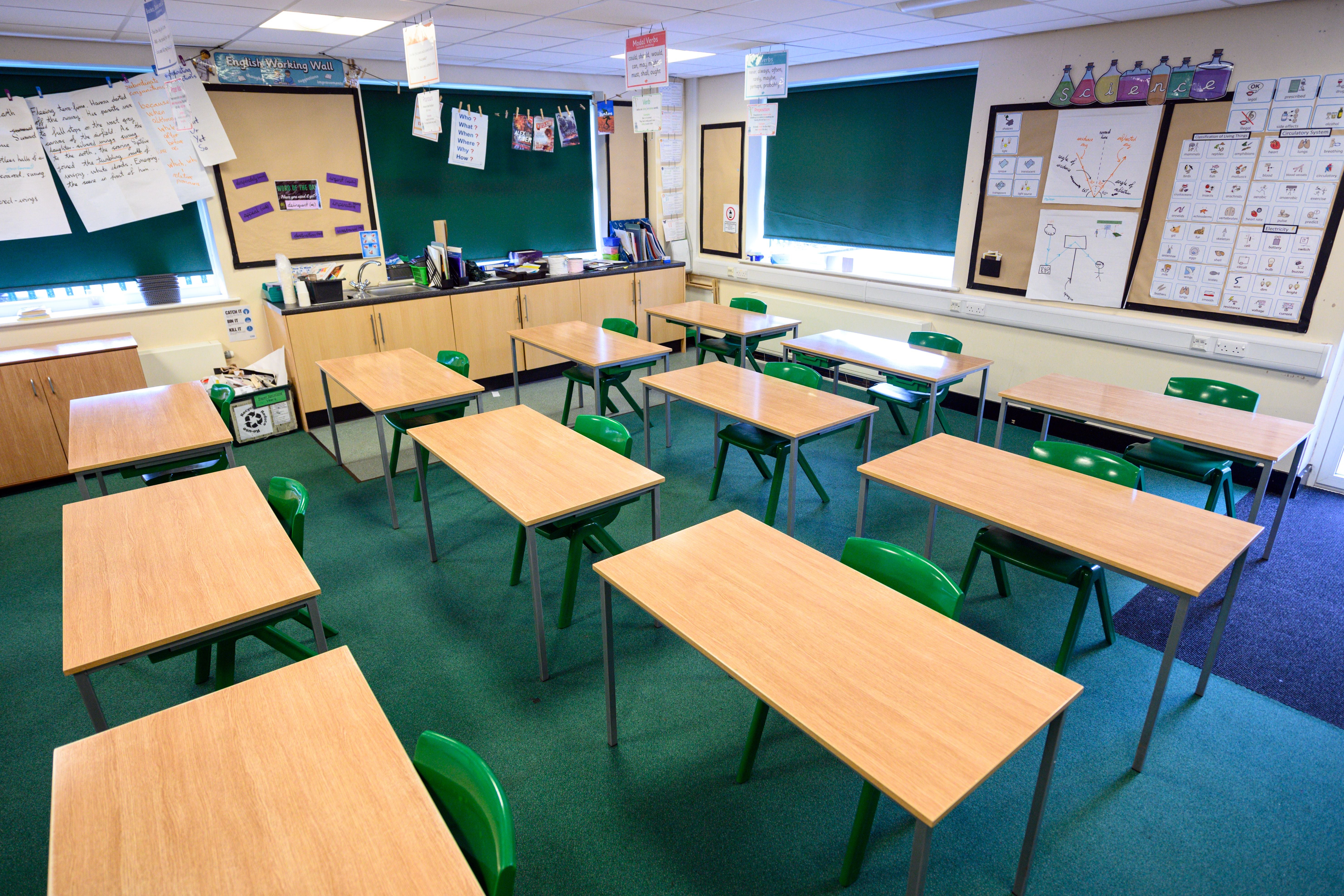Racism, Islamophobia and conspiracy theories among extremist views witnessed in classrooms, study finds
Nearly nine in 10 teachers say they have heard conspiracy theories being discussed by students

Your support helps us to tell the story
From reproductive rights to climate change to Big Tech, The Independent is on the ground when the story is developing. Whether it's investigating the financials of Elon Musk's pro-Trump PAC or producing our latest documentary, 'The A Word', which shines a light on the American women fighting for reproductive rights, we know how important it is to parse out the facts from the messaging.
At such a critical moment in US history, we need reporters on the ground. Your donation allows us to keep sending journalists to speak to both sides of the story.
The Independent is trusted by Americans across the entire political spectrum. And unlike many other quality news outlets, we choose not to lock Americans out of our reporting and analysis with paywalls. We believe quality journalism should be available to everyone, paid for by those who can afford it.
Your support makes all the difference.A majority of teachers have heard students express extremist views including racism, homophobia and conspiracy theories in classrooms across England, a study suggests.
But schools are unable to tackle extremism in young people due to a lack of resources and training, as well as limited space in the curriculum, a report by the University College London (UCL) found.
The study collated views from 96 teachers across schools in England, with the majority saying they have heard pupils express far-right extremist views in the classroom, as well as Islamophobia and “extremist views about women”.
Nearly nine in 10 say they have heard conspiracy theories being discussed by students - including the theory that Bill Gates “controls people via microchips in Covid vaccines”.
Almost all teachers say they have overheard “hateful extremism” through racist views.
There is also concern amongst staff about students’ exposure to hateful content and misinformation online, which it is feared has increased throughout the pandemic.
Many teachers told the researchers they did not broach the subject of extremism within the classroom as they felt they did not have enough knowledge of particular issues, and were fearful they will get matters - especially relating to race - wrong.
The report calls for teachers to be given better training to lead open discussions in the classroom about extremism, so that they are better equipped to teach young people how to reject, and respond to, dangerous ideologies.
It said: “Much anti-extremism work is well-meaning but is stymied by overcrowded curricula, a lack of resources, a desire to perform policy for Ofsted, and a mandate to detect and report vulnerability to radicalisation rather than necessarily stamp out its root cause.”
The report, published days before the 20th anniversary of the September 11 terror attacks, was commissioned by education charity Since 9/11, which said the findings were a “wake-up call”.
It says there is an urgent need to provide schools with the training and tools to teach pupils how to reject extremist views.
“Dangerous ideologies must never be swept under the carpet,” it added.
The report’s researchers have also called for more support through the education sector, as well as in local communities to tackle extremist views within young people.
Dr Becky Taylor, from the UCL Centre for Teachers and Teaching Research, said: "This report shows that some schools fail to move beyond surface-level explorations of violence, extremism and radicalisation; however, it is without doubt that schools can play an important role."
She added: "Education policies must consider the fact that some schools may need more help than others to build on what they already have in place.
"Engaging well with their local communities and ensuring that schools and teachers are supported and appropriately resourced can help young people to problematise ‘hateful extremism’."
Join our commenting forum
Join thought-provoking conversations, follow other Independent readers and see their replies
Comments